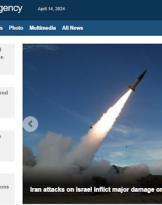For over two years, two Italian soldiers have been held hostage by India and returned by the institutions to the undue judgment of a third state, but now nobody talks about it. It almost seems that Massimiliano Latorre and Salvatore Girone have returned to Italy and everything is back to normal as nothing had happened.
The silence is deafening, broken only by sporadic and whispered words of circumstance.
Meanwhile the two naval fusiliers continue to be detained in India without any charge and the homeland of the laws of distant Ciceronian origins, borrowed in many other countries, is subject to Indian arbitrariness, clearly carried forward in the most absolute contempt of international law and human rights.
A situation in which the land that gave birth to Dante, Michelangelo, Leonardo Da Vinci, Garibaldi and Mazzini and many others who laid the cultural and political foundations on which, in part, the modern world is founded, loses international credibility on a daily basis.
A silence that leads us to think that at an institutional level that minimum of national pride that makes a nation great and makes it credible in a now globalized way, an essential parameter for the economic growth of any country, has been lost.
An Italy that is silent starting from the head of the state and the armed forces, to tell the truth always very silent on the story of the marines, who, however, remembers also distant events with sadness and regret. Last but not least, the commemoration of the 34 year of the Ustica massacre on the occasion of which he recalled the need to shed light on a story he had fully lived as a parliamentary of the republic.
The plane was shot down on June 27, 1980. President Napolitano today rediscovers the need for it to be shed internationally, despite the fact that in the 80s he was probably in a position to solicit immediate clarity as he was committed to tackling problems of international and European politics , and was a member of the Foreign Affairs Committee of the Chamber of Deputies and a member of the Italian delegation to the North Atlantic assembly (1984-92 and 1994-96. Source: Quirinale website).
It does so by sending a message to the Association of Victims "Ustica Massacre" writing among other things "I understand and share the regret for the lack of a comprehensive reconstruction of the dynamics and responsibilities of that tragic event, despite the long years of investigations and processes celebrated ", and specifying that a" tenacious solicitation is needed to make every possible further effort - even on an international level - to reach an exhaustive reconstruction of what happened in the skies of Ustica, committing all the institutions to do their part so that to ascertain the truth ".
Words that suggest that perhaps the Institutions of the time of which he was a part lacked something, if only in incisiveness in the international arena.An Italy in which the Minister of Foreign Affairs participates in NATO works by dealing with relevant international issues, but does not mention what is known about the abnormal situation of the two marines, perhaps because it is conditioned by the prospect of taking Asthon's place as a high representative of European foreign policy and probably intending to follow the path of complete inattention for the two naval fusiliers.
Again, an Italy in which the minister of defense intends to involve Italian citizens for proposals on the new defense model but does not keep them informed on what is in progress to objectify the internationalization of the case, as she herself stated several times. Only a reassurance through a news agency yesterday where he claims to have met the head of the Pentagon Chuck Hagel in Washington, obtaining from the US the "maximum support" for the case of the two marines. "I talked about the issue with Hagel and for the US that of the marines - said the minister - it's not just Italy's problem ..."
A country in which to address the specific problem the need was felt to appoint a "government commissioner", the Italian-Swedish dr. Staffan de Mistura, who despite the reassurances was unable to bring the two soldiers home, but was rewarded by assigning him to the presidency of an expensive European apparatus destined to deal with peace where diplomacy is not successful and destined to preside over a school of diplomacy that should operate in Capri.
A nation where renowned academics operate, experts in international and maritime law, who are left aside by preferring Anglo-Saxon figures of unclear professional structure to them.
In light of all this, therefore, it is not risky to affirm that Italy languishes, ready only to accept the acts of empire of a Europe where democratic equality between states seems to move further and further away.
A passive Italy ready to shoulder even dangerous burdens such as the transshipment in the port of Gioia Tauro of chemical weapons from Syria. The acceptance of a very high risk when others, such as Germany, despite having NATO structures also equipped for the destruction of material in this case, have preferred not to deal with the problem.
A situation that is under the eyes of the world and that the world judges in real time in an era in which information travels beyond time zones and hemispheres, which unfortunately involves two Italian soldiers and their families and of which someone first or then he will have to account for it to avoid that in decades another Head of State be forced to talk about it by expressing words of belated closeness to Italian citizens that today the State seems to have forgotten.
Fernando Termentini












